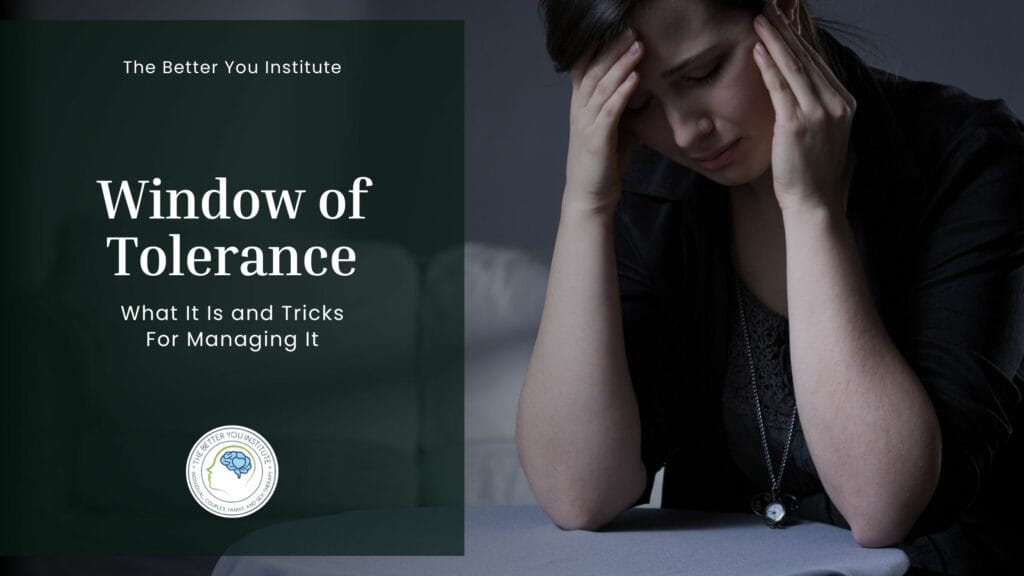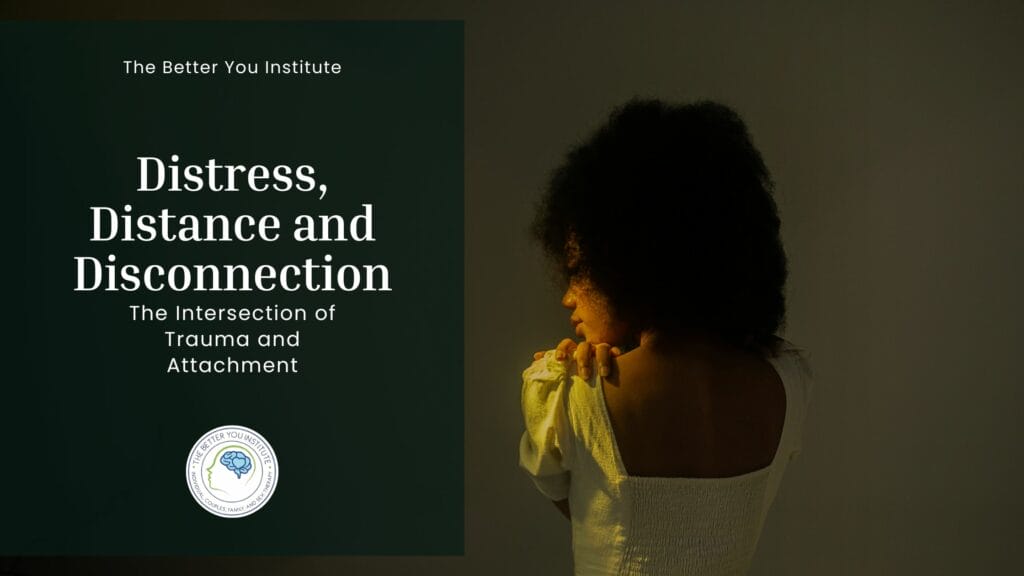Table of Contents
Common Misconceptions for Adult Children of Divorce
A common misconception about divorce with children is that it hits hardest for young kids. When you consider an adult, you might think of an individual whose life and identity are firmly established. Their sense of self is beyond their childhood and family of origin. Society may consider the adult as independent from their family and, therefore, less affected by the consequences of divorce. In actuality, the contrary is true.
Think about how we develop our worldview and the rules of engagement that we participate in. Our parents’ relationship plays a major role in the development of our worldview and these rules. As we get older, our worldview and patterns of interaction become more ingrained in who we are. Now, think about if the central relationship that we used to create these rules deconstructs. Where does that leave us in understanding the world and how to engage in it? It makes us question the rules that were created from that relationship, as well as our entire lens as nothing feels stable anymore.
The common truth for many, is that adult children of divorce can have identical experiences to young children. However, the divorce may cause different reactions depending on what stage of life the child is in when it occurs. Let us look at how the most common side effects of divorce take its toll on adult children.
Increase in Stress
A common experience with divorce is an increase in conflict. This conflict may create tension, hostility, or even result in abuse. Depending on how this conflict is handled, either in front of the children or behind closed doors, it can impact a child’s stress levels. For adult children who are out of the home, this stress shows up differently. They don’t see the increase in arguments that occur daily leading up to a divorce. Sometimes they hear about it directly from parents, or indirectly through snide comments and ambiguous conversations. Another indicator that something is awry is when their parents feel “off” to them (e.g., not calling as much, being distracted, or desiring more time together).
An adult child could have a variety of responses to this kind of stress. For example, the child may experience a loss of concentration at work or feel a loss of interest in hobbies. They may also be unable to engage in relationships, feel obligated to help their parents, or start fights in their own relationship. Another response could be tension with a parent if the child is trying to remain neutral but senses hostility from the parents. This tension may cause the child to pull away from communicating with their parents, or side with one parent over the other. Thus, this puts the child in a position where they lose the support or connection they once had from both parents.
Choosing a parent
Another phenomenon that accompanies divorce is a sense of choosing a parent in the process. Even if adults live under a separate roof, a sense of betrayal or guilt may be present. Negative divorces often feel like a war between the parents; therefore, an adult child can feel like they have betrayed a parent by choosing to have a relationship with the other. By continuing an existing relationship that has been the norm for their entire lives, it now brings up immense feelings of guilt or shame. The adult child may think they have “chosen sides,” albeit unintentionally.
Pressure to choose may also come from a parent themselves. Thus, creating triangulation of the child into their parent’s divorce, or in other words, involving them in the process. Parents triangulating their adult children may look like withholding money or tuition in return for communication from the ex spouse. It may also manifest as parents who talk poorly about the other parent to the child. This creates an environment that pressures the adult child to participate. Triangulation can lead to significant stress and feelings of being torn between the parents, with little direction for the child.
A family therapist experienced with divorces can help you and your children cope through the divorce process. Child and teen therapy are also a great way to help children cope with their parents divorce.
Re-Meeting Your Parents After Their Divorce
As parents separate, the child now has two independent individuals to foster a relationship with, rather than one parent-child relationship. These individuals come with their own expectations and boundaries for a relationship. Not only do the ex-spouses have to get to know themselves again, but the children must re-meet their parents individually.
It’s common for both parents to adopt roles in the marriage. One may be the stay-at-home caretaker and one may leave for work each day. Maybe both parents were physically present with the children, but one was absentminded while the other had the role of keeping conversation. As parents continue life on their own and try to adjust, these roles are suddenly changed. Perhaps an introverted parent, who relied on their extroverted spouse to engage, is now forced to connect deeper with their children on their own. Maybe a stay-at-home parent who tended to the kids now starts working and socializing with new friends. This ultimately takes away the attention that used to be limitless to their children. These new roles can be a difficult adjustment for everyone involved in the divorce.
While parent-child relationships evolve with age, an unforeseen shift in a parent’s role can be jarring. Those who are navigating adulthood often rely on consistency in their parent figures. Even though the child may adjust to this change, they’ll have to grieve for the parent they knew before. The parent whom they’ve grown to love, depend on, and connect with. Simultaneously, they’ll be resetting expectations for what the new parent has to offer. As an adult child, it can feel like you are meeting a stranger from the very beginning; and when you’re looking at a parent you’ve known for decades, feeling a sense of foreignness can be bewildering.
Dividing Your Time
As divorce finalizes and each parent begins to grow independent lives, family time becomes divided. Holidays and weekends alternate each year so both parents get to spend a holiday with the kids. For adults, some have spent the holidays the same way for decades. Traditions have formed over these years. Now, spending the holiday apart creates a void where feelings of love and celebration usually exist. With that comes an intense sense of grief for lost traditions.
Moreover, one or both parents might start dating. This may require more time alone with their new partner than they can give to their child. For children of divorce, adding new people to the mix (e.g., new partner or partner’s children) can be emotional. Perhaps their new partner may have their own kids that are getting invited to “family” events like holidays and vacations. Suddenly, family time feels like a cocktail hour of smalltalk as these relationships take time to develop, if at all. Additionally, the adult child may become protective of their parent as they already saw the parent get hurt once. Adding new people into the family dynamic can be confusing, and might put duties onto children they never wanted.
Caring for Parents Through the Divorce
After finding a way to split your time as a child of divorce, you face the dread of disappointing one parent in the wake of pleasing another. It’s human nature for a parent to compare relationships that the ex-spouse may share with their child. By sharing these feelings with their child, parents may create responsibilities for the child to ensure both parents feel cared about. This facilitates the process of parentification. Parentification is when children are placed into a “parent” role of caretaking instead of being a kid. This includes soothing the parent and ensuring both parents are emotionally cared for, which is never a child’s job.

Because of age or maturity, adult children may be expected to play an active role in supporting their parents through adversity. Adult parentification can look like serving as a confidant for the parent, helping a parent apartment-search, reorganizing finances after a divorce and so on. Once again, causing the child to own their parents’ distress.
To put it simply, there is no age at which your parents become peers. The parent-child relationship, though it may evolve, is just that: a parent-child relationship. Boundaries must exist to prevent unwarranted, negative impacts such as anxiety, depression, or people-pleasing to name a few. Not to mention, adult children have their own relationships to nurture, friends to please, jobs to do, and partners to make time for. It’s important to prioritize that children, at any age, only grow responsible for themselves and their own children, not their parents.
Being a Mediator
Playing mediator is another common concept when discussing divorce. When considering a mediator, you consider lawyers, police officers, or any professional whose job it is to get involved in disputes. Unfortunately for many children, they become the “mediator” for parents in a nasty divorce. Parents divorcing should seek for professional counseling to help overcome their personal issues and avoid involving too much their children during these tough times.
When parents refuse to communicate with one another, the most convenient way to relay a message is through their shared child. Parents often assume their adult children can handle topics of divorce. This involvement crosses the child’s boundaries by sharing inappropriate information that is meant to stay between the parents. Through this, you can contaminate the child’s perception of their parents. Additionally, this involvement puts the adult child at risk for distress depending on how the other parent responds.
Questioning Your Identity as a Child of Divorce
One of the most surprising aspects to your parents getting divorced, is the toll it takes on your sense of self. Your parents often establish the lens that you live through and base your decisions on. When that lens is put into question, so is your sense of self.
As an adult you spent decades forming your identity on principles established and repeated in the family. For instance, maybe your family had sayings like, “family is the most important,” or “blood is thicker than water.” Imagine the confusion of waking up one day and the mantras you’ve gone by for 20-something years are suddenly in question. Is family the most important? If so, why is mine dissolving? Without my family, as I know it, what do I have now? It is the worldviews we adopt from our families that suddenly don’t make sense anymore; and when your worldview comes into question, you feel lost.
Your Sense of “Home”
In addition to questioning your fundamental principles, there is another loss to be considered as adult children of divorce: your home. This home is where you get to know yourself, where you learn to self-soothe, and where a lot of growth happens. While this happens to almost everyone at some point, the manner in which it happens can play a role.
Losing the house that built you is nearly inevitable. Families move on, either together or apart, to new beginnings that usually include selling the family home. With divorce, selling the home becomes symbolic of the family you lose in the process. This becomes sad in a way that can’t be resolved with the bittersweet notion that this happens to everyone. Granted, the members of your family may still be around, but the sense of family you shared in the home no longer exists. There is a shadow cast upon the memories of that house that you won’t share that dynamic again, even in your family’s new beginnings.
Some say the sense of home is less about where you live and more about who you’re with. This makes sense. But when you’re re-learning who your parents are, and your home is taken away, what sense of stability is left? This question leaves individuals feeling like they’ve lost their foundation, a place often visited when the world feels unsafe.
Shift in Family Dynamics
As the family heals and relationships are rebuilt, there is a shift in the family dynamic to be prepared for. Parents or children create new boundaries that are unfamiliar and create a new feel to the family. This new dynamic may require old behaviors to die out and new behaviors to develop, which requires an abundance of patience.
For example, as parents move out of the home, the remaining parent creates new rules. If an antagonistic parent moves out, there is more room for peace in the home. The new found peace may be foreign to adult children and the other parent alike. If parents find new partners, there are different personalities to interact with. This either creates room for a tense dynamic or beautiful new connection for the kids.
While this all may be very overwhelming in the beginning, this shift in dynamic will become the new normal. As members adjust, hopefully it will allow for new memories and relationships to be created. Alternatively, this shift can be too uncomfortable for children, and may drive them to take space from the family.
Relationship Anxiety as an Adult
One of the longest lingering effects from divorce is how it impacts a child’s view of relationships. Our parents’ relationships are the first model for kids to base their expectations of love on. The nature of the divorce can greatly influence a child’s prediction for what’s in store for themselves.
 Those who are blindsided by their parents’ divorce become confused about what can help a marriage last if their parents didn’t. This may look like a newlywed suddenly doubtful whether her young marriage has built the foundation necessary to withstand conflict. She may become excessively worried about whether she and her partner were thorough in determining compatibility. Ultimately, creating an anxiety that didn’t exist before learning about her parents’ divorce.
Those who are blindsided by their parents’ divorce become confused about what can help a marriage last if their parents didn’t. This may look like a newlywed suddenly doubtful whether her young marriage has built the foundation necessary to withstand conflict. She may become excessively worried about whether she and her partner were thorough in determining compatibility. Ultimately, creating an anxiety that didn’t exist before learning about her parents’ divorce.
On the other hand, individuals who witnessed abusive marriages go on to learn that this is how a relationship is supposed to be. They repeat those abusive patterns in their own relationship. It’s not until their parents get divorced, and they witness an end to the abuse, that they realize they have picked up harmful patterns. Comparatively, it may take a lot of work from their current partner to show adult children what is healthy and unhealthy in a relationship. Whatever type of relationship two spouses share, that relationship serves as a template for children to compare to.
Feelings of Relief
In contrast to what we’ve discussed so far, it’s important to consider children who desire their parents to split. It’s common for children to ask their parents for divorce when surrounded by fights, hostility, and abuse. This can either be a heat of the moment response, or an enduring wish of the child finally coming to fruition. If parents fulfill this desire, the child may be met with feelings of relief. Or, they can be met with confusion to find they are actually sad their parents are divorcing; conflicting feelings are normal.
While adult children may or may not experience the changes at home, relationships with each parent may improve from the divorce. They may learn things they have in common together, and children may find that they enjoy spending one on one time with their parents. Experiencing an improvement in these relationships could teach the child that relationships are capable of positive change, even after decades of a pattern. Comparatively, adult children may have always wished their parents divorced, but learn that it’s not what they expected. They may see a parent less than the other, or suffer a strained relationship from the stress of divorce. This could leave them feeling regret wishing for the divorce in the first place, or grief for the way things were before, as mentioned above.
How to Deal with Divorced Parents and Navigate Your Parent’s Divorce
Self-Compassion
After reading this blog, if you feel like any of these topics relate to you, stop and take a moment to practice self-compassion. As threaded throughout this article, divorce is a painful experience for so many individuals. No member of the family is exempt from feeling the effects of a marriage disintegrating. Adulthood does not come with a guide for how to navigate a crack in your foundation, and your parents’ marriage helped to build that foundation. Allow yourself time to adjust and grieve your family as you knew it.
Communication
A helpful skill to strengthen during your parents’ divorce is how to communicate about the situation. If you find the topic of your parents’ divorce painful and anxiety producing, express that. Divorce can be a very isolating experience, and communicating with others about how you feel can offer relief if other family members feel the same way. Additionally, connecting with those who can empathize in your experience can provide a sense of comradery in the situation. Don’t be afraid to share your experience in hopes that someone can relate. Furthermore, if you find that the topic of divorce is a trigger for you, adapt your language to meet your needs. Ask others around you to filter your conversations if it’s something you don’t wish to talk about.
Boundaries
Boundaries will likely be the most important tool for every member of the family during a divorce. They allow each individual to process and go through the divorce at their own pace, using their own language. By respecting each other’s boundaries, you create room for growth in this time of change. If you find yourself triggered by conversations of divorce, take that topic of discussion off the table. At no age are you required to hear about why your parents split or whose fault it was, if any.
If your parent continuously brings up details of the divorce, a boundary would look like saying,
“I’m not comfortable discussing the details between you and (other parent), can we talk about something else?”
If that parent decides to continue with the discussion regardless of your boundary you can respond with,
“I’m unable to continue this conversation as long as it’s about […] divorce”
Remove yourself from the conversation until that parent understands what you’re comfortable talking about and what you’re not.
Adults are often expected to understand the failing of a relationship and therefore, withstand the details of a divorce. Your parents’ divorce is not just any relationship ending- it is one of the most impactful relationships to you. You deserve to be guarded from hurtful information that may alter your perception of your parents or love.
Separate Yourself from your Behaviors in Response to the Divorce
Sometimes divorce can create reactions in people that they don’t recognize. Once a person who was always confident in their relationship, now questions their partners’ intentions. Separating yourself from this behavior would look like,
“I feel doubt about the intentions of my partner after losing trust in my parents’ relationship” rather than “I’m distrusting of my partner.”
For someone who never experienced anxiety, and is suddenly worrying excessively about what life-altering event is coming next, separating those behaviors looks like saying,
“I feel anxiety about the future because my foundation was shaken” rather than “I’m an anxious wreck”
Separating yourself from your behaviors can empower you to feel more control over them. These reactions are normal in response to an impact like divorce, and they don’t need to define you as a person, especially during the healing process.
Seek Therapy to Cope with Your Parents’ Divorce

Divorce is such an intricate process when it comes to an entire family- don’t hesitate to seek therapy in order to avoid self destructive behavior maintain an healthy relationship with your divorced parents. Therapy can allow children to understand their parents divorce in a way that’s meaningful to them; Whether they wish to empathize with their parents, understand their own emotions around it, or find a way to move on from it.
If you feel you may need additional guidance to navigate this massive change, individual therapy can do wonders to help you re-solidify your foundation and strengthen your own identity. Individual therapy can also provide insight to patterns you may have picked up on in the process of your parents’ separation that are no longer serving you as an adult. After experiencing so much change and complex loss, it makes sense why you may feel the need to be grounded once again. There are professionals who are trained to help you do that.
Conclusion
Parents divorcing is an unfortunately common experience for many individuals! The thought of this doesn’t make it any less painful, regardless of age. With the proper tools put in place, this wound can heal over time. Until then, be mindful of the expectations you set for yourself as you navigate the impact of your family changing, and reach out to someone if you need extra support in the process.
If you would like more help navigating the grief, confusion, and anxiety of your parents’ divorce, or if you have questions on this topic or are looking for more support, please reach out to one of our trained therapists at The Better You Institute. Call us at 267-495-4951.
Meet The Author:

Brianna Intili
Professional Counselor
Brianna Intili, MA, NCC, is a Professional Counselor and Director of Professional Development specializing in mindfulness-based approaches to help clients find peace in adversity. Focused on empathetic, judgment-free counseling, she empowers individuals to overcome challenges like mood disorders, low self-esteem, and life transitions. With a BS in Psychology from James Madison University and an MA in Clinical Mental Health Counseling from Marymount University, Brianna combines cognitive techniques and a holistic view for a fulfilling life.
Learn more about Brianna Intili ⇒










